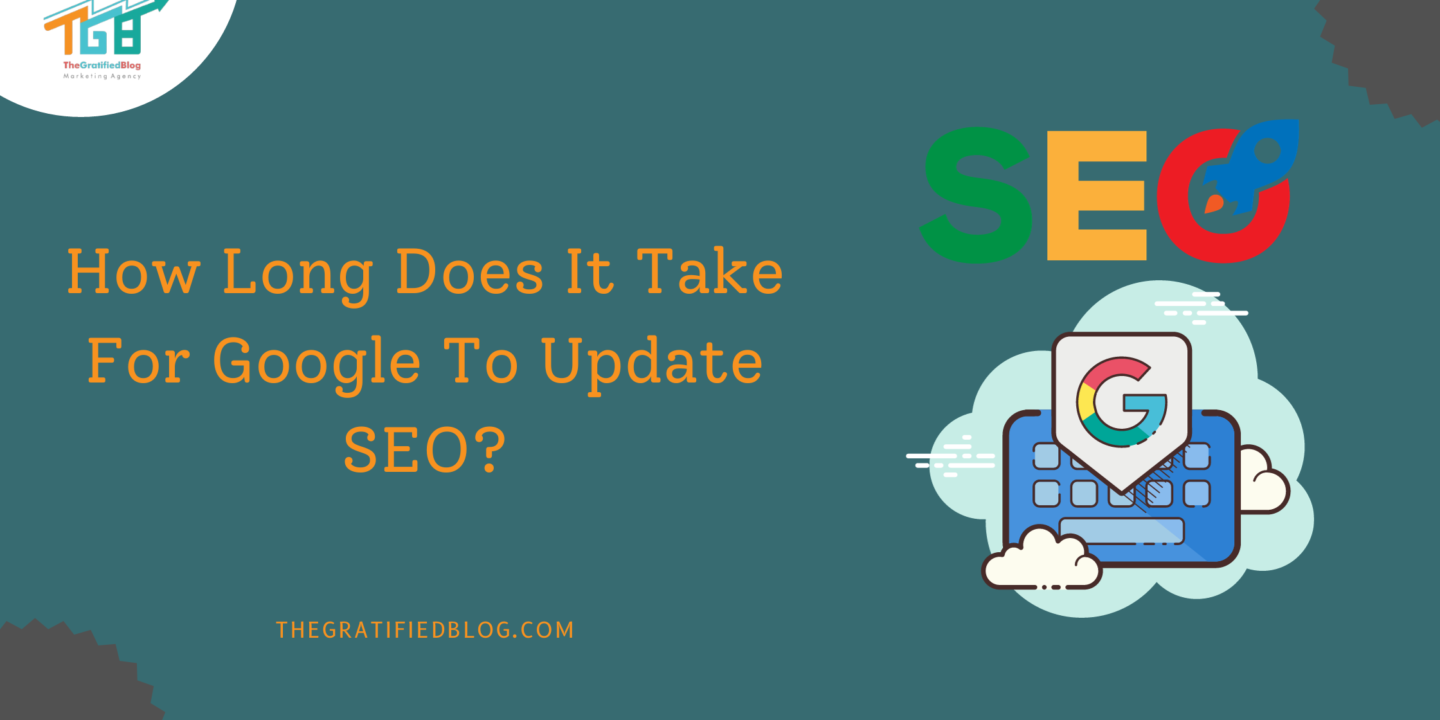
In the ever-evolving world of digital marketing and search engine optimization (SEO), staying ahead of the curve is crucial for maintaining a competitive online presence. One of the most common questions that webmasters and SEO professionals ask is, “How long does it take for Google to update SEO?”
In this blog, we’ll explore this question in detail, shedding light on the factors that influence the time it takes for Google to update SEO and how you can navigate these changes effectively.
How Long Does It Take For Google To Update SEO?
To address how long it takes for Google to update SEO, it’s essential to begin by comprehending the nature of SEO updates.
Understanding SEO Updates
Before delving into the timeframe for SEO updates, it’s essential to understand what SEO updates mean.
Search engines like Google regularly tweak their algorithms to offer search results that are more pertinent and precise. These updates aim to improve user experience by favoring websites featuring high-quality content while punishing those engaging in spammy or manipulative practices.
Common Google algorithm updates include Panda, Penguin, Hummingbird, and, more recently, BERT. Each update targets specific SEO aspects, such as content quality, backlinks, mobile-friendliness, and user intent. These updates are crucial for maintaining the integrity of search results, but they can also significantly impact website rankings.
Now, let’s explore the elements that impact SEO updates
Factors Influencing SEO Updates
Several factors contribute to establishing the timeframe for Google to update SEO for a specific website. Familiarizing yourself with these factors can assist you in more effectively handling and adjusting to SEO modifications:
- Frequency of Google Updates: Google rolls out minor algorithm updates almost daily, while significant updates occur several times yearly. Minor changes may not significantly impact your website’s rankings, but essential updates can lead to noticeable fluctuations in search engine results pages (SERPs).
- Scope of the Update: The extent of the algorithm update is critical. Some updates target specific issues like spammy backlinks, while others, like core updates, can affect many factors, including content quality, user experience, and more.
- Website Size and Authority: Larger, more authoritative websites might frequently experience SEO updates than smaller ones. This is because Google prioritizes crawling and updating websites with higher traffic and influence.
- Content Freshness: Websites that frequently publish new, high-quality content tend to attract Google’s attention more often. Regularly updating your website can speed up the process of Google recognizing your SEO efforts.
- Historical SEO Practices: If your website has a history of engaging in black-hat SEO techniques or violating Google’s guidelines, it may take longer for Google to trust your website and reward your SEO improvements.
- Competition: The level of competition in your niche also plays a role. Highly competitive industries require more effort and time to see substantial SEO improvements.
With a grasp of SEO updates and a knowledge of the variables that influence them, we can now delve into the pivotal question: how long does it take for Google to update SEO?
How Long Does It Take For Google To Update SEO?
The timeframe for Google to update SEO can vary widely depending on the abovementioned factors. However, there are some general guidelines you can follow to manage your expectations:
- Immediate Changes: Some SEO changes can produce almost immediate results. For example, fixing broken links or resolving technical issues can quickly improve your website’s ranking. Likewise, improving your website’s loading speed or optimizing meta tags can result in noticeable changes within a few weeks.
- Content Updates: When you update or add new high-quality content to your website, Google will often re-crawl and re-index your pages within a few days to a few weeks. However, the full impact of these changes on your SEO rankings may take longer to materialize.
- Backlink Building: Acquiring high-quality backlinks from authoritative websites is a long-term strategy. It can take several months to see the positive effects of a successful link-building campaign. Be patient, as Google values the quality and relevance of backlinks over their quantity.
- Major Algorithm Updates: Major Google algorithm updates, such as core updates, can take several weeks or months to roll out and stabilize fully. During this time, you may notice fluctuations in your rankings as Google fine-tunes its algorithms.
- Recovering from Penalties: If your website has been penalized by Google, it can take time to recover. After addressing the issues that led to the penalty, you must submit a reconsideration request and wait for Google to reevaluate your website.
As we approach the conclusion of this blog, you might be wondering about effective strategies for managing SEO updates. Don’t worry. In the following section, we will explore how to do just that.
Managing SEO Updates Effectively
While you may not have direct control over the exact timing of Google’s SEO updates, You can implement measures to enhance their management:
- Regular Monitoring: Keep an eye on your website’s performance in the search results. Use tools like Google Search Console and Google Analytics to track changes in traffic and rankings.
- Quality Content: Focus on creating high-quality, informative, and captivating content that satisfies the requirements of your intended audience. Regularly update and refresh your content to stay relevant.
- White-Hat SEO: Stick to ethical and white-hat SEO practices. Avoid shortcuts like keyword stuffing, link schemes, or cloaking, which can lead to penalties.
- Technical SEO: Attention to technical SEO aspects like page speed, mobile-friendliness, and structured data. An appropriately optimized website has a higher probability of ranking well and recovering from updates quickly.
- Link Building: If you engage in link building, prioritize quality over quantity. Seek backlinks from authoritative and relevant websites within your industry.
- Adapt to Change: Be prepared for fluctuations in rankings during significant algorithm updates. Continuously adapt your SEO strategy to align with Google’s evolving guidelines.
- Seek Expert Help: If you need help navigating SEO updates, consider consulting with an experienced SEO professional or agency that can guide you.
Conclusion
The question, “How long does it take for Google to update SEO?” doesn’t have a one-size-fits-all answer. The timing of SEO updates varies depending on various factors; understanding these factors and following best practices can help you manage SEO updates more effectively and ensure your website remains competitive in the ever-changing landscape of online search.
Remember that SEO is an ongoing process, and remaining informed about the most recent advancements is essential. to long-term success in the digital realm.
We hope this blog has addressed your queries. If you have any more questions about the content discussed, please don’t hesitate to ask in the comments section. We’re here to provide answers and assist you further.
Thanks for reading 🙂








No Comments